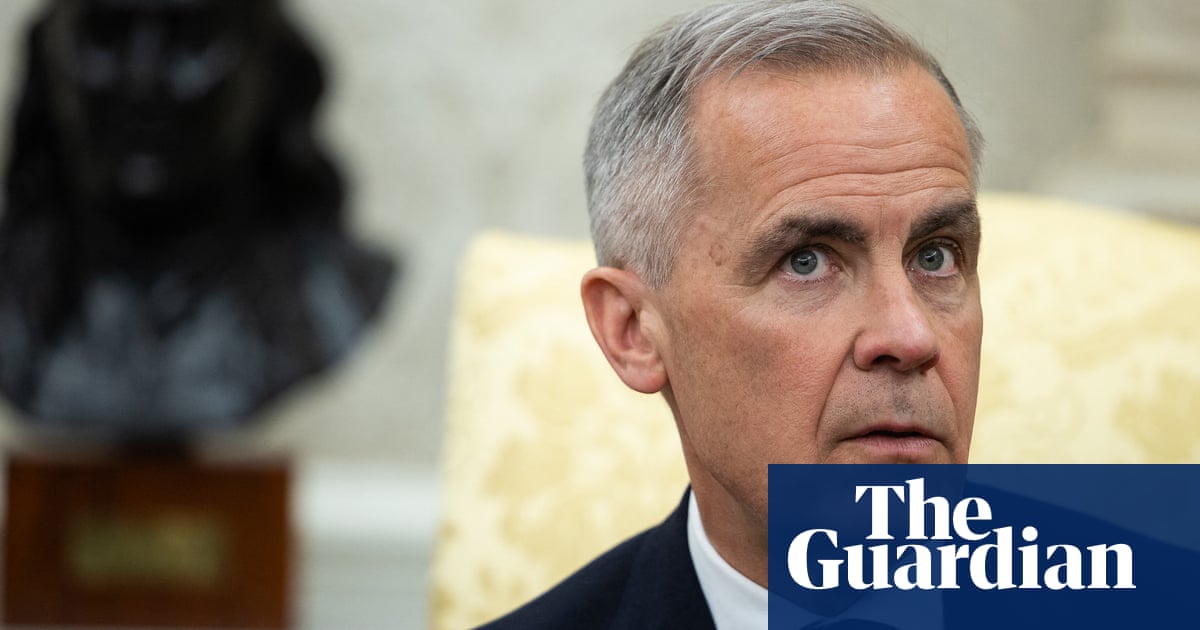Canada’s prime minister,Mark Carney, has criticisedBritain’s invitation to Donald Trump for a second state visit, saying it undermined his government’s effort to project a united front against the US president’s talk of annexing Canada.
Since taking office in January, Trump has repeatedly said he wantsCanadato become the 51st US state, a suggestion that has angered Canadians and left Britain trying to tread a fine line between the two North American countries.
Britain’s King Charles is also head of state of Canada, a former British colony, and the monarch has made a number of symbolic gestures in recent months, wearing Canadian medals, planting a maple tree and referring to himself as the king of Canada.
Charles, who is still undergoing cancer treatment, is also due to attendCanada’s state opening of parliamenton 27 May, the first time a British monarch has attended the event in Ottawa since 1977.
Carney, in an interview with Sky News, was asked about the move by the British prime minister,Keir Starmer, in February to use his visit to the Oval Office to hand Trump an invitation from the monarch for an unprecedented second state visit to London.
“I think, to be frank, they [Canadians] weren’t impressed by that gesture … given the circumstance. It was at a time when we were being quite clear about the issues around sovereignty,” he said.
Carney, who won a party race to become prime minister in March before he secured victory in Canada’s election last month by vowing to stand up Trump, said Charles’s presence in Canada later this month was by design.
“All issues around Canada’s sovereignty have been accentuated by the president. So no, it’s not coincidental, but it is also a reaffirming moment for Canadians,” he said.
Starmer, who is trying to improve trading ties with the US after Britain left the European Union, has sought to play to its strengths when dealing with Trump, talking up its security expertise, pledging higher defence spending, and offering the pomp and pageantry that comes with a state visit.
Trump, whose mother was born in Scotland and who has repeatedly praised the British royal family, agreed a limited bilateral trade agreement with London this month.
Asked about Carney’s criticism, the senior British minister Pat McFadden told Sky News that every country had to decide how to conduct its relations with other countries.
